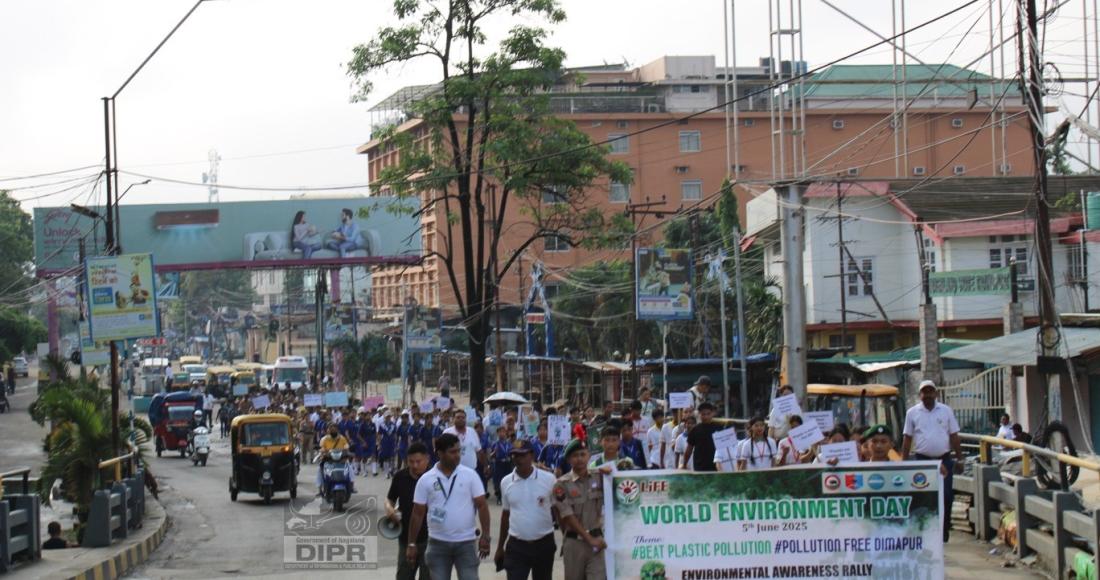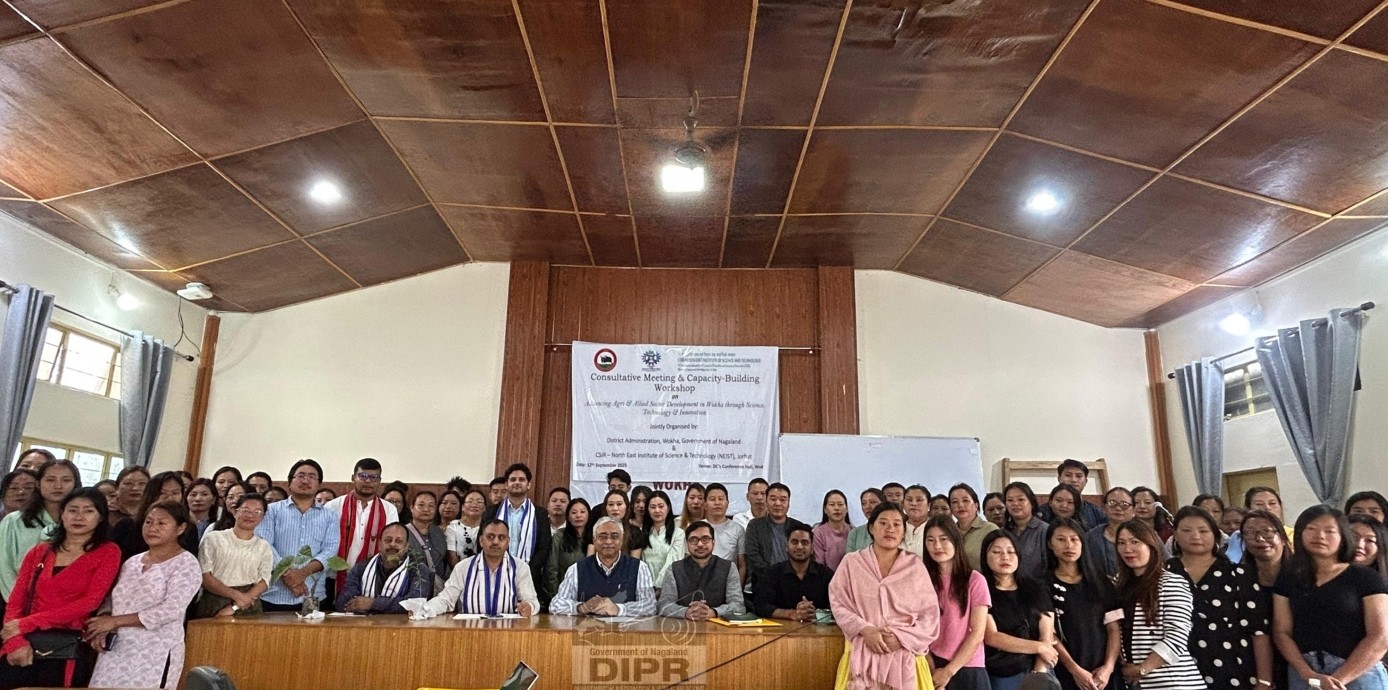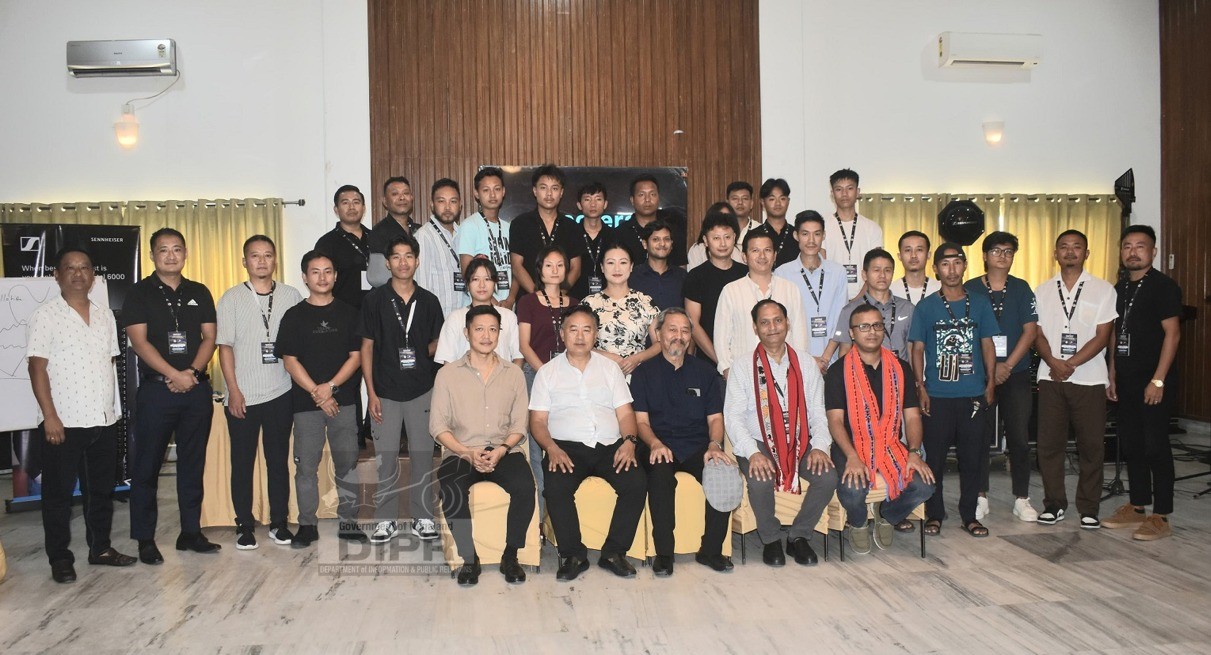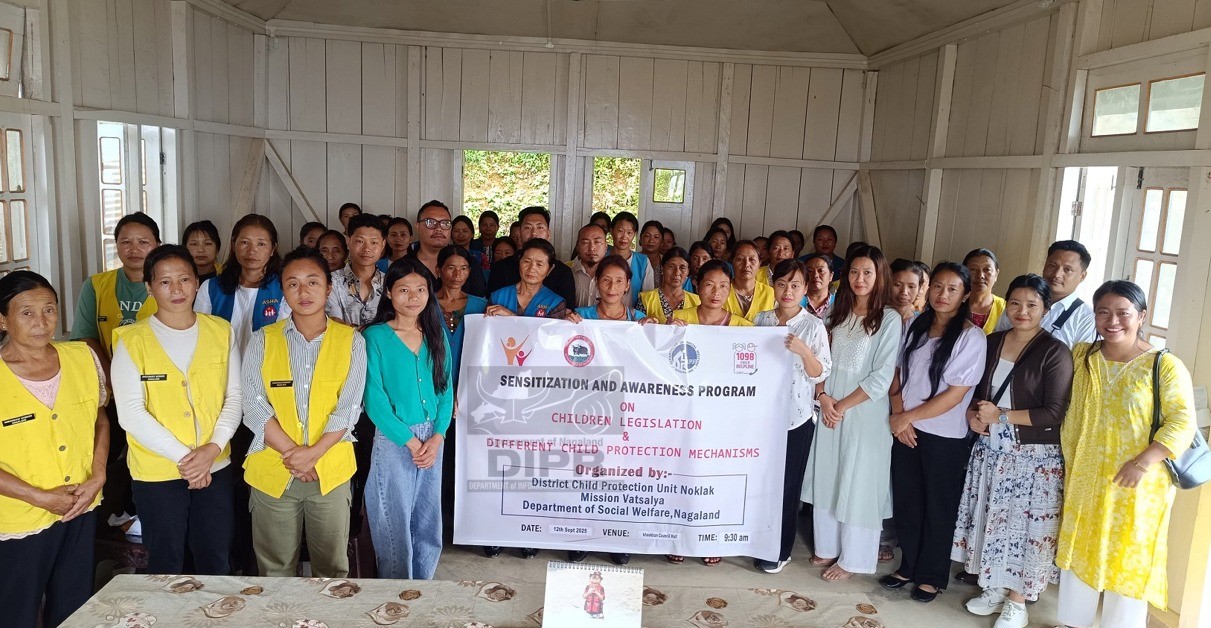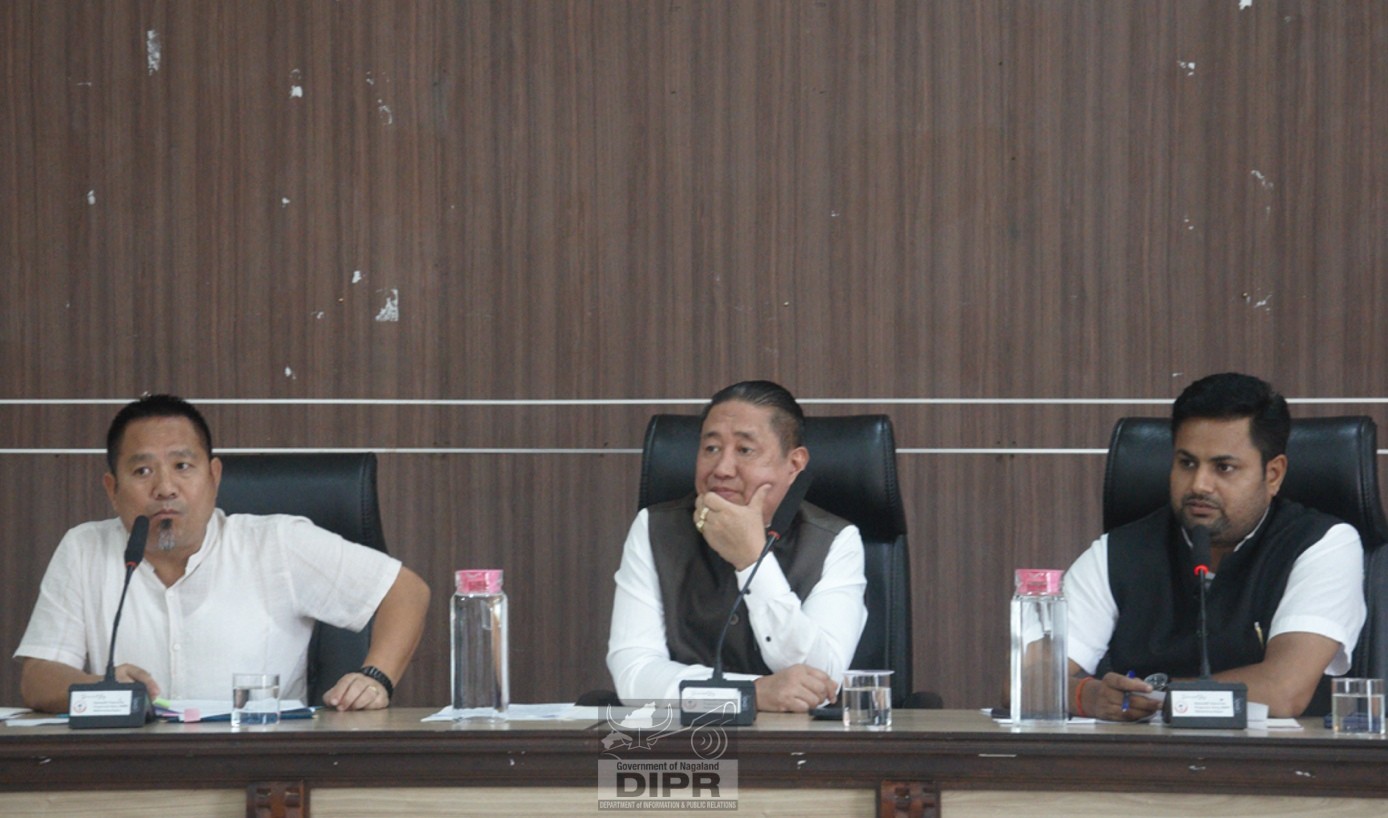World Environment Day 2025 was observed in Dimapur with a large-scale public awareness campaign organized by Nagaland Pollution Control Board in collaboration with Team Better Dimapur and by the District Administration, Dimapur Municipal Council (DMC), and Commissioner of Police under the theme: “Beat Plastic Pollution - Pollution Free Dimapur.” The day began with a flag-off ceremony outside Town Hall followed by a convergence at Clock Tower Circle and a culmination programme at State Stadium.
The programme witnessed enthusiastic participation from various schools and colleges, the Participants converged at Clock Tower Circle and the procession began towards the State Stadium.
At the culmination programme held at the State Stadium, the opening note was delivered by Mhonjan Humtsoe, President of Team Better Dimapur, where he urged the citizens to take collective action against plastic pollution. He also highlighted the harmful effects of multilayer plastic (MLP) and encouraged proper waste segregation in schools and colleges to support Dimapur Municipal Council’s waste management efforts.
Humtsoe informed that Team Better Dimapur, in collaboration with DMC and Earth Alliance, plans to collect MLPs from educational institutions and send them for safe disposal to cement factories. Emphasizing the importance of reducing plastic usage, he called on everyone to adopt small daily habits to protect the environment and make Dimapur cleaner and greener.
This was followed by short speeches from Thungchanbemo Tungoe, CEO of DMC, who stressed the importance of civic sense and individual responsibility in addressing environmental challenges, particularly plastic pollution.
Tungoe emphasized that while awareness campaigns and environmental programmes are conducted regularly, real change will only happen when civic sense is internalized by every individual. He expressed concern over the careless disposal of plastic waste and the lack of civic discipline, stating that even pristine locations like Dzukou Valley and deep forest rivers in Nagaland are now littered with plastic.
Highlighting the global issue of microplastics, Tungoe pointed out that human beings unknowingly consume plastic every day through fish, tap water, and other sources. He explained how microplastics are now a part of the food chain, and questioned whether such a trend could be considered healthy for the future of the planet.
Tungoe urged the youth, particularly students, to become agents of change. He encouraged them to influence the older generation by practicing and promoting environmentally conscious behaviour. “It is your generation that must lead by example and educate others,” he said, adding that even small efforts like avoiding plastic bags and spreading awareness can have a lasting impact.
He also called upon the media to actively participate in spreading the message of sustainability, reminding them of their unique position to influence public opinion. According to him, the media can be a powerful ally in promoting a plastic-free and environmentally responsible Dimapur.
SDO (Civil) Dimapur, Wiridin Zeliang called for urgent and united action against plastic pollution during the World Environment Day. He emphasized that the fight against pollution is a shared responsibility that requires active participation from every citizen.
He acknowledged the contributions of Team Better Dimapur, the Dimapur Municipal Council, Nagaland Pollution Control Board, and environmentalists, stating that their consistent efforts have played a vital role in spreading awareness and initiating change. He appreciated the media for being present and encouraged them to play a proactive role in disseminating environmental messages.
Zeliang highlighted the direct link between plastic waste mismanagement and issues such as blocked drainage, flooding, and disease outbreaks like malaria and dengue in Dimapur. He noted that many of these problems could be mitigated with responsible waste disposal and community cooperation.
Speaking to the youth, he said that the younger generation must lead by example and instill environmental values even among elders. He stressed that government agencies alone cannot tackle the issue unless citizens themselves are willing to change their mindset and adopt eco-friendly habits.
Sharing his own experience from his previous posting in Tobu, where he declared a village a plastic-free zone, Zeliang pointed out that even remote villages can take meaningful action. He urged urban residents to reflect and take inspiration from such examples.
Environmental activist and Director of Mission Healthy Bharat, Tapsi Upadhyay in her speech, emphasized that while people routinely take pledges to protect the environment, many fail to follow through in practice. She pointed out that every day, individuals recite pledges yet their actions contradict those words when it comes to caring for the environment.
She reminded the audience that the human body is made of the five elements of nature and urged everyone to first say “yes” to themselves by respecting their own health and well-being. “Plastic is not a part of me,” she remarked, encouraging people to reject plastic use as a step toward self-love and environmental responsibility.
Upadhyay further warned that by polluting rivers and air with plastics and chemicals, humans are unknowingly creating a ‘Planet B’—a place full of toxins and unsuitable for survival. She called on citizens to act immediately and responsibly, stating that the choice to live in a healthy world or one filled with pollution lies in our hands.
Scientist 'B' of the Nagaland Pollution Control Board (NPCB), Yanathung Kithan, emphasized the urgent need for waste segregation at the source. He highlighted that waste management cannot be the sole responsibility of agencies like the DMC or NPCB, and urged every citizen, especially students, to take ownership. Referring to NPCB’s joint study with DMC, including observations during the Hornbill Festival, he pointed out the challenges of segregating waste at dumping sites and stressed that the process must begin at homes and institutions. He concluded by reminding the gathering that “My environment, my responsibility” should be everyone’s guiding principle.
A pledge was also led by ThungchanbemoTungoe, CEO, DMC and participation certificates were distributed to all attendees. All together 650 students and representatives from different organizations attended and participated in the event.
(Tiakumla, IA Dimapur)


